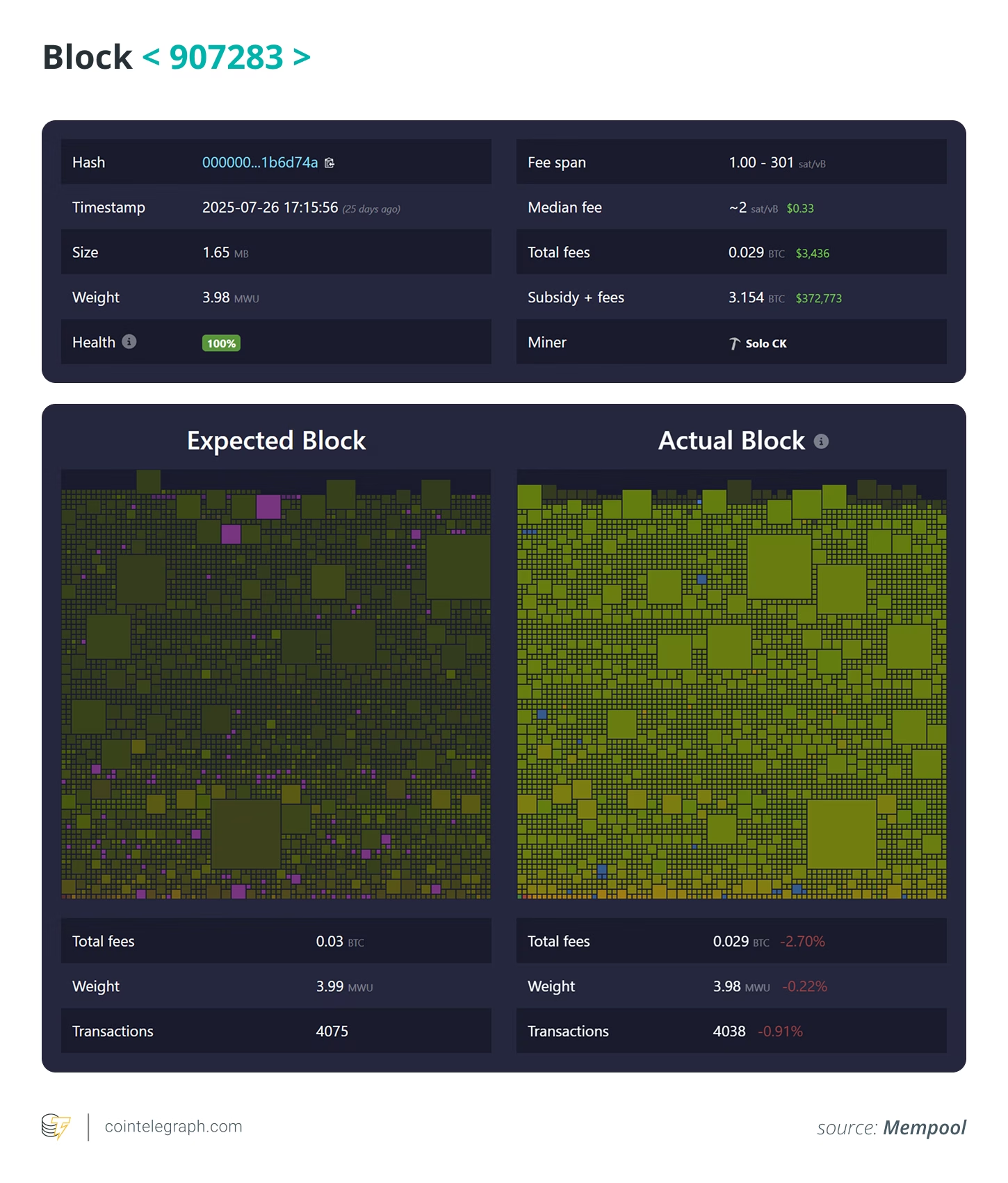How the $373,000 solo miner got their one‑in‑a‑million win
On July 26, 2025, a solo Bitcoin miner achieved an ultra-rare feat by mining block 907,283 through the Solo CKPool.
They overcame steep odds in a network dominated by industrial-scale operations to claim the full block reward of 3.125 Bitcoin (BTC), worth about $372,700. The block included 4,038 transactions and $3,400 in fees.
Solo CK is a unique mining pool that allows individuals to mine independently while using shared infrastructure. Unlike traditional pools, it doesn’t split rewards.
This rare success came as Bitcoin’s network difficulty hovered near all-time highs (around 26 trillion), which makes solo success increasingly unlikely.
Yet the miner beat millions of competing miners with sheer persistence and a bit of luck. The block’s successful addition to the blockchain served as a powerful reminder that even though the mining market has become highly corporatized and competitive, small players still have a shot at glory — even though the odds might be minuscule.
How the Solo CKPool works
Solo CKPool is primarily designed for miners who want to go solo without running everything themselves. Unlike traditional pools that split rewards based on hash power, Solo CK gives you the entire block reward — but only if you find the block. If not, you earn nothing.
It mimics true solo mining but runs on infrastructure maintained by the CKPool operator, which gives you more stability and better connectivity than running a node on your own.
The setup lets small-scale miners take a shot at full rewards, even if the odds are long. It’s a high-risk, high-reward play, ideal for those who understand the low probability but want the potential payout of 3.125 BTC in a single hit.
You can track your mining stats and block status through sites like solostats.ckpool.org and mempool.space. These tools help verify whether your miner has submitted a valid block. Every once in a while, someone does — like the solo miner who cracked block 907,283 — proving it’s possible.
Did you know? Satoshi Nakamoto mined the first Bitcoin block, the “Genesis Block,” on Jan. 3, 2009. It included a hidden message referencing a newspaper headline, proving it wasn’t pre-mined and marking the birth of decentralized money.
Click Here to Read the Full Original Article at Cointelegraph.com News…
